SCREENPLAY 101: RAGING BULL
Boxing movies are a lot like submarine movies or zombie movies - no matter how good they are, they tend to fall into the same sorts of patterns. Mardik Martin knew that when he took on the task of co-writing the script for RAGING BULL (screenplay by Paul Schrader and Mardik Martin, based on the book by Jake La Motta with Joseph Carter and Peter Savage), number 76 on the list of the WGA's 101 best screenplays. Martin, a longtime confederate of BULL director Martin Scorcese, was reluctant to take on the script, partly because he didn't want to make a typical boxing movie. "The trouble with RAGING BULL is that the damn thing has been done a hundred times," he says in the excellent Peter Biskind book EASY RIDERS, RAGING BULLS (available in our library). "A fighter who has trouble with his brother and wife, and the mob is after him. I don't want to do another brother-fighter story because that was done in CHAMPION. And ROCKY is out, same company. Same producers!"
Oh, and Martin had no interest in boxing or La Motta, and didn't like the book the movie is based on. "I think this book is full of shit," he says in Biskind's book. "It's made-up stuff, looks like a PR job." Most historians and cinephiles seem to agree that BULL was the brainchild and passion project of star Robert De Niro anyway, so much so that during preproduction he naturally took to boxing.
Whatever Martin thought, the final product is compelling, and - for my money at least - the brotherhood angle is what really sells the story. Joey La Motta, played beautifully by then-newcomer Joe Pesci, is consumed with maintaining the delicate balance of his brother's fragile psyche and the mob goons pulling his strings, which is a lot like trying to balance a house of cards on the San Andreas Fault. In a windstorm. As Earth crashes into the sun.
The very first thing Joey tries to do is appeal to Jake with money, right on page 2:
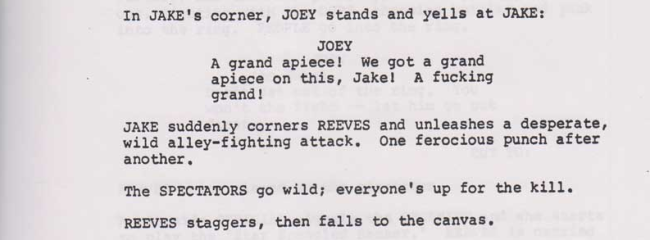
The money motivates Jake in the moment, but as we come to see, it's not really what's deep in Jake's heart.
Over the next few pages, we see Joey dicker with mobster Salvy behind the scenes, speaking on Jake's behalf and struggling with that delicate balance:
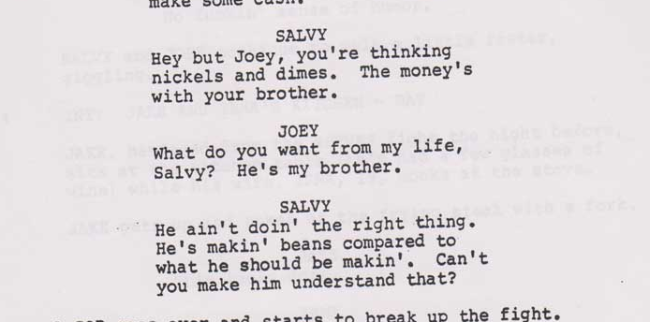
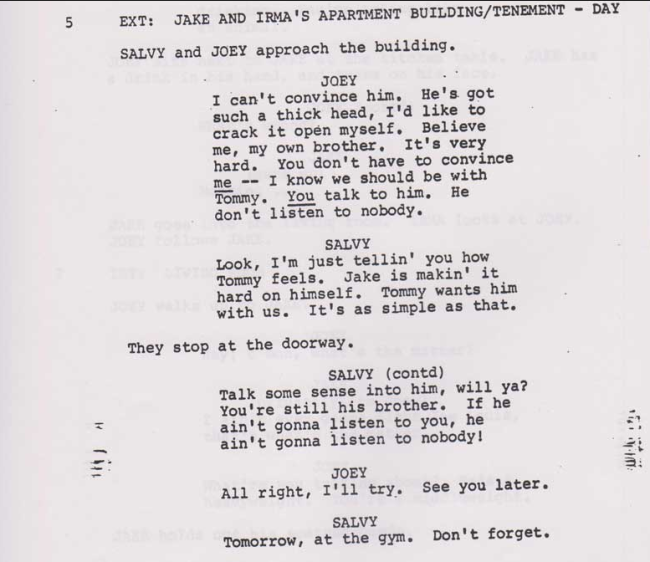
Later in the film, Joey and Salvy come to blows when Joey finds that Salvy very likely has designs on Jake's wife Vickie; knowing the mad, irrational jealousy that constantly swarms Jake's head, he knows he has to put out this fire before it starts.

Oh, and by the way, even a stopped clock is right twice a day; Jake wasn't exactly wrong to be jealous of Salvy, as we see earlier in the script (apologies for the quality of our scan here):
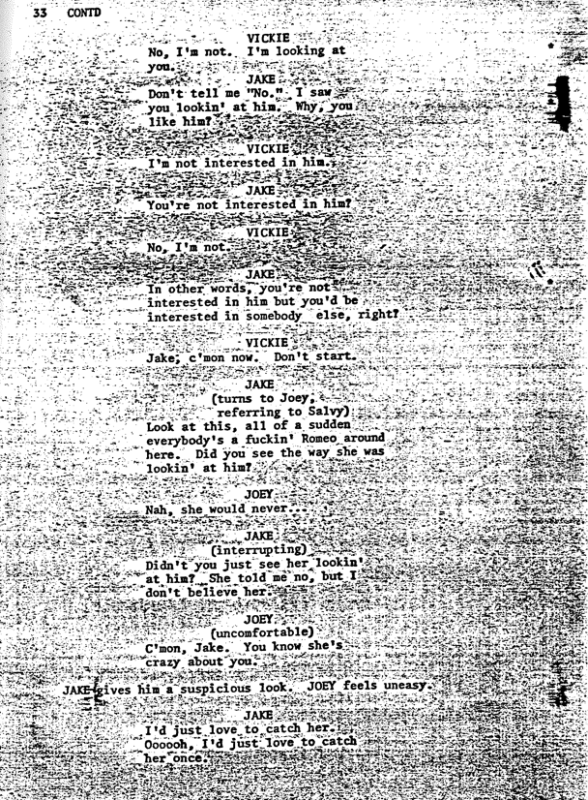
But of course, Joey's attempt to protect Jake from the big bad world is precisely what starts the chaos that ends the two brothers' relationship.
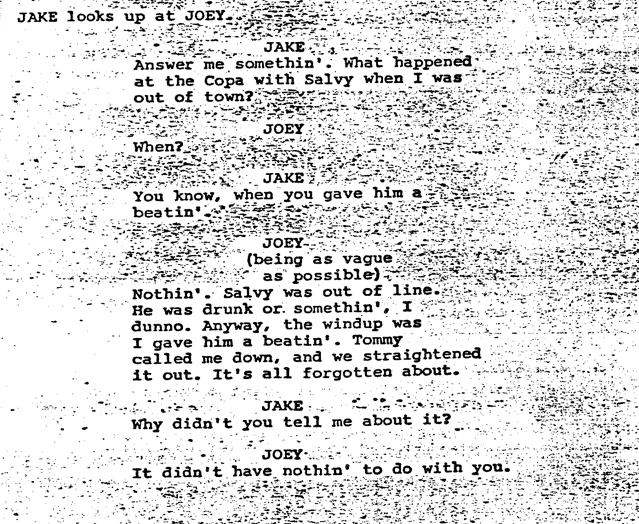
In the end, the movie about a boxer having trouble with his brother and his wife ended up being a profound fall-from-grace story, much like ON THE WATERFRONT (which is referenced in the final pages of the script). Along with uncredited partners Scorcese and Robert De Niro (according to David Thompson's SCORCESE ON SCORCESE), Martin and Schrader imbued the script with the subtlety and realism common to 70s cinema (though this movie is from 1980).
Here’s the deal: Throughout 2014, we’re posting pages from every script on the WGA’s list of the 101 Greatest Screenplays, as chosen by Guild membership, because we have every one in our library. Sure, we have other scripts that didn’t make it onto the list, either because they didn’t make the cut or because they were produced after the list was generated (presumably SHARKNADO, which we totally have a copy of, is only in the latter category).
